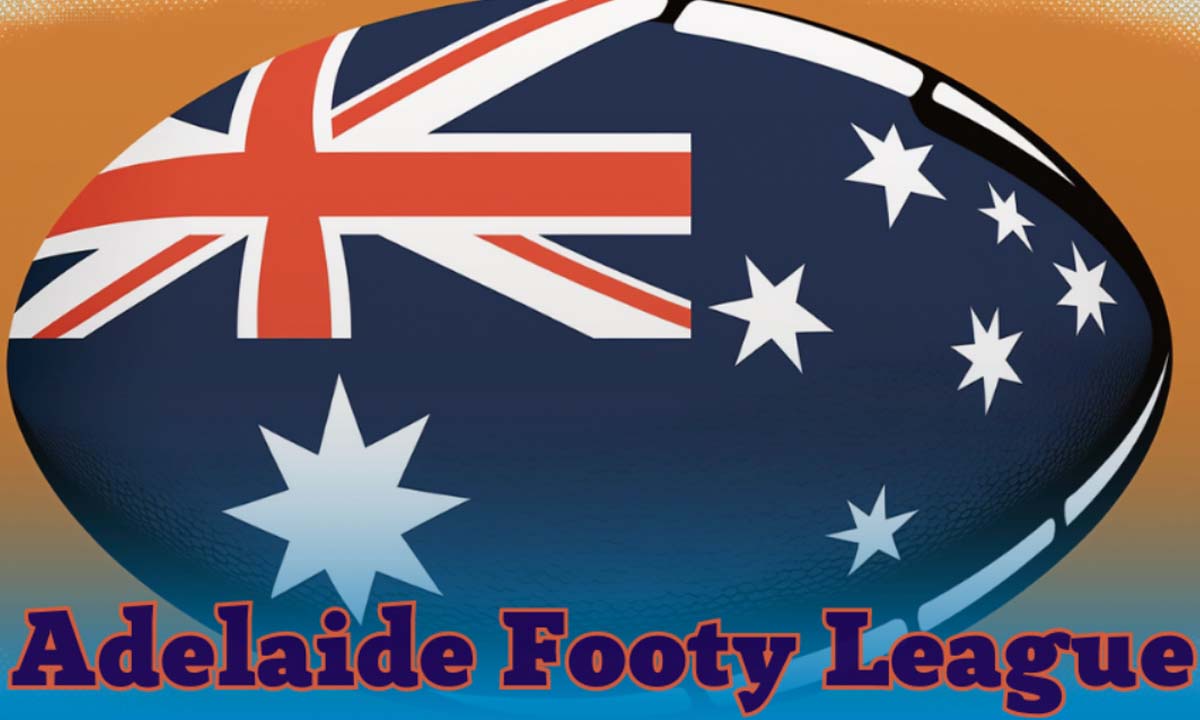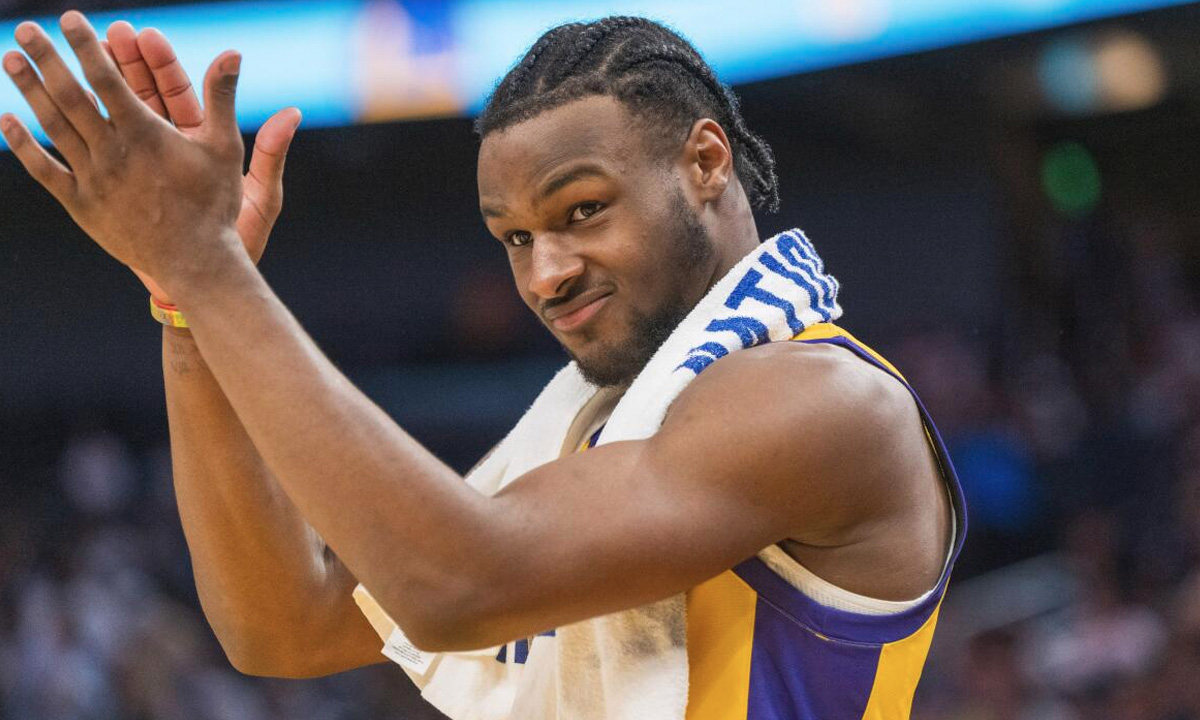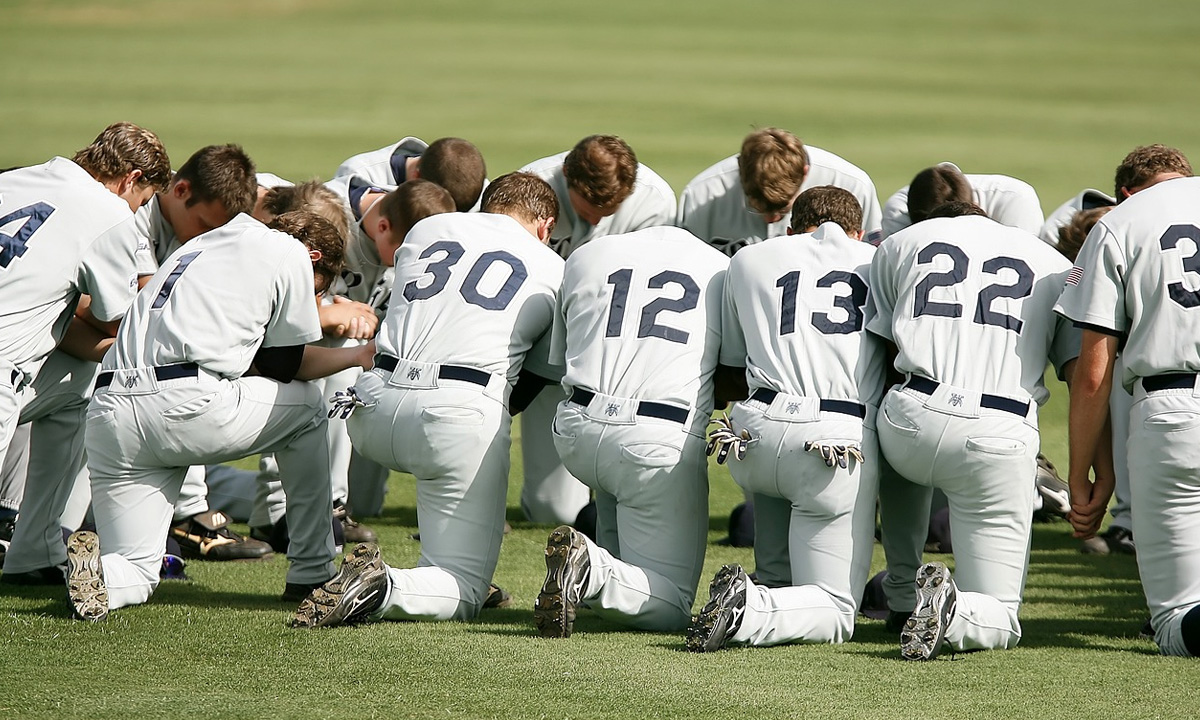Sports
Adelaide Footy League: History and Current Clubs
After World War II, the Footy League experienced significant growth as the appetite for Australian Rules Football increased across South Australia.

The Footy League has been integral to South Australia’s sporting landscape for over a century. With a rich history of passionate teams and dedicated fans, the league has contributed to the region’s growth and development of Australian Rules Football.
This article will explore the storied past of the Footy League and provide an overview of the teams that currently make up the competition.
Origins and Early Years (est. 1911)
Football is the most watched sport in Australia, with clubs playing from all around Down Under. Everybody knows that football and casinos are Australia’s most popular activities, featuring heavily in the country’s culture.
Many Australian footballers or sports lovers like to visit different casinos and the deposit 5 get 25 free casino is among their favourites. Gambling as a leisure activity attracts a lot of football fans and players. They like competitions, and adore the excitement and thrill they can get gambling or playing sports.
The Footy League, originally known as the South Australian Amateur Football League (SAAFL), was established in 1911. The foundation of the league was driven by the desire to create a competition that offered players an opportunity to participate in Australian Rules Football without the pressure of professional contracts or financial incentives.
In its inaugural year, the league consisted of just four teams, but it quickly gained popularity and expanded over the following years.
Post-World War II Expansion and Growth
After World War II, the Footy League experienced significant growth as the appetite for Australian Rules Football increased across South Australia. More football groups joined the competition, and the league’s structure evolved to accommodate the growing number of participating squads.
This period of expansion also saw the league establish a reputation for fostering local talent, with many players progressing through the ranks to join professional tiers such as the South Australian National Football League (SANFL) and the Australian Football League (AFL).
The Footy League has undergone several name changes and restructures throughout its history. In 1991, the league changed from the SAAFL to the South Australian Amateur Football League Inc. (SAAFLI) to reflect its incorporation as a not-for-profit organisation.
In 2015, the league rebranded again, adopting its current name, the Adelaide Footy League. This change was made to better represent the league’s geographical focus on “Adelaide” and its surrounding suburbs.
The Footy League has experienced numerous milestones and achievements over its long history. In 2011, the league celebrated its centenary, marking 100 years of providing a platform for amateur Australian Rules Football in South Australia.
Additionally, the league has been instrumental in fostering the growth and development of women’s football, launching a women’s competition in 2016.
Current Clubs in the Footy League
The Footy League comprises seven divisions, with 67 teams participating. Each division consists of various teams that compete against one another throughout the season, culminating in a finals series to determine the divisional champions.
Division 1
- Brighton Bombers: The Brighton Bombers team was established in 1908, three years before the inception of the Footy League. The club has a storied history and has won numerous premierships across different divisions. Over the years, several talented players from the Bombers have made their way into the professional football world.
- Goodwood Saints: Formed in 1995 through the merger of Goodwood and St. Raphael’s squad, the Goodwood Saints have quickly established themselves as a powerhouse in the Footy League. The club has enjoyed sustained success, capturing multiple Division 1 premierships and consistently producing talented players who have gone on to achieve success in higher tiers.
- Henley Sharks: The Henley Sharks team was founded in 1899 and had a long history of participation in the Footy League. The team has enjoyed considerable success, winning numerous premierships across various divisions. The Sharks are also known for their strong community involvement, focusing on developing local talent and promoting the sport of Australian Rules Football.
- Payneham Norwood Union: Established in 1897, the Payneham Norwood Union team is one of the oldest teams in the Footy League. The team has a rich history and has claimed multiple premierships. As a community-driven club, they are dedicated to fostering local talent and promoting the sport of Australian Rules Football in the region.
Division 2
- Broadview Tigers: The Broadview Tigers team was founded in 1930 and has experienced success across various divisions in the Footy League. Known for its strong community focus, the team is dedicated to developing local players and providing them with the opportunity to excel in the sport.
- Plympton Bulldogs: Established in 1909, the Plympton Bulldogs team has a storied history in the Footy League. The club has won several premierships and is committed to promoting Australian Rules Football within the local community. The Bulldogs are also known for their strong emphasis on player development and have produced numerous players who have gone on to achieve success in higher “leagues”.
- Salisbury North Hawks: The Salisbury North Hawks “Football Club” was established in 1951 and has been a staple of the Footy League ever since. The club has enjoyed success throughout history, winning multiple premierships across different divisions. The Hawks are dedicated to fostering local talent and promoting Australian Rules Football within the community.
- Seaton Ramblers: Founded in 1960, the Seaton Ramblers club has been a prominent fixture in the Footy League for many years. The club has a strong history of success, winning numerous premierships in various divisions. The Ramblers pride themselves on their community involvement and focus on developing and supporting local talent.
Division 3 Clubs
- Blackfriars Old Scholars: The Blackfriars Old Scholars club was founded in 1972 by former students of Blackfriars Priory School. The club has succeeded in the Footy League, winning premierships in multiple divisions. The Old Scholars are dedicated to fostering a strong sense of community and promoting the sport of Australian Rules Football.
- Fitzroy Lions: The Fitzroy Lions Club was established in 1932 and had a rich history in the Footy League. The club has won numerous premierships across various divisions and is committed to developing local talent and promoting the sport within the community.
- Flinders University: The Flinders University club was founded in 1966 and is unique in that it is associated with the university’s student body. The club has experienced success in the Footy League and is dedicated to promoting Australian Rules Football within the university community, as well as developing local talent.
- Greenacres Warradale: Established in 1922, the Greenacres Warradale team has been a staple of the Footy League for many years. The club has enjoyed success throughout history, winning multiple premierships in various divisions.
Division 4 Clubs
- Adelaide Lutheran: The Adelaide Lutheran club was founded in 1962 and had a strong history within the Footy League. The club has claimed multiple premierships and is committed to fostering local talent and promoting the sport.
- Golden Grove Kookaburras: Established in 1994, the Golden Grove Kookaburras club has succeeded in the Footy League, winning several premierships across various divisions. The Kookaburras are dedicated to developing local players and promoting the sport within the Golden Grove community.
- Modbury Hawks: The Modbury Hawks club was founded in 1964 and had a long history of participation in the Footy League. The club has won numerous premierships and is known for its strong community involvement.
- Smithfield Crows: Established in 1982, the Smithfield Crows has experienced success in the Footy League, winning premierships in different divisions. The Crows are committed to promoting Australian Rules Football within the community and fostering local talent.
Division 5 clubs
- Brahma Lodge Lions: The Brahma Lodge Lions club was founded in 1971 and has been a fixture in the Footy League ever since. The club has enjoyed success throughout its history, winning multiple premierships across various divisions. The Lions are dedicated to fostering local talent and promoting Australian Rules Football within the community.
- Eastern Park Demons: Established in 1974, the Eastern Park Demons Football Club has a storied history within the Footy League. The club has claimed several premierships across different divisions and is committed to developing local players and promoting the sport of Australian Rules Football within the community.
- Ingle Farm Bulldogs: The Ingle Farm Bulldogs Football Club was founded in 1968 and has enjoyed success in the Footy League. The club has won numerous premierships and is known for its strong community involvement, focusing on developing local talent and promoting the sport of Australian Rules Football.
- Kilburn Magpies: Established in 1938, the Kilburn Magpies Football Club has experienced success in the Footy League, winning multiple premierships across different divisions. The Magpies are committed to promoting Australian Rules Football within the community and fostering local talent.
The Footy League’s Impact on Australian Rules of Football
The Footy League is crucial in nurturing local talent and providing a pathway for players to progress through the ranks. Many players have used the league as a springboard to launch successful careers in professional leagues such as the SANFL and AFL.
By offering opportunities for players to hone their skills and develop their game, the Footy League contributes significantly to the overall growth and success of Australian Rules Football in South Australia.
This League is deeply ingrained in the South Australian community, strongly focusing on engaging local fans and fostering a love for the sport. The leagues are actively involved in their communities, hosting events, supporting local initiatives, and promoting the values of Australian Rules Football. This community-driven approach has helped to build a passionate fan base and has been instrumental in the sustained growth of the sport in the region.
The Footy League has played a vital role in expanding the reach of Australian Rules Football throughout South Australia. By providing a competitive and accessible platform for amateur players, the league has helped to foster a love for the game and has contributed to the growth of the sport at all levels. The Footy League’s continued commitment to developing local talent and promoting the game will ensure that Australian Rules Football continues to thrive in the region.
Conclusion
Footy League’s diverse range of teams from various divisions reflects the depth of talent and passion for Australian Rules Football in the region. These teams actively engage with their local communities, contributing to the growth and development of the sport at a grassroots level. The league’s commitment to fostering local talent has resulted in the formation of strong and competitive teams that inspire young athletes to pursue their dreams of playing football at higher levels.
Furthermore, the Footy League is an important platform for teams to showcase their skills and compete against one another. This healthy competition between teams helps to maintain high standards of play and enhances the overall quality of the league. With such a strong foundation, the Adelaide Footy League’s teams will continue to flourish and contribute to the long-term success and growth of Australian Rules Football in the region.
Sports
Venkatesh Iyer and Priyanka Jawalkar’s Dating Rumors Were False
Venkatesh Iyer noted, “Cute!!” in the Telugu actress Priyanka Jawalkar’s photo.

Venkatesh Iyer is a professional Indian cricketer who plays for Madhya Pradesh in domestic cricket and Kolkata Knight Riders (KKR) in the Indian Premier League (IPL).
With his outstanding performance, the Kolkata Knight Riders batsman led the team to the IPL championship in 2024. He also played a huge part in the team’s 2021 campaign where they were the runners-up.
In addition to his professional success, Iyer once gained national attention for his sly comment on a Telugu starlet’s post.
Venkatesh Iyer and Priyanka Jawalkar dating rumors
With his Instagram comment, KKR’s star Iyer became widely discussed.
A heated debate regarding whether Telugu actress Priyanka Jawalkar was the girlfriend of Iyer broke out after he left a comment on Jawalkar’s photo on Instagram.

Venkatesh Iyer commented on Priyanka Jawalkar’s post (Source: jawalkar/Instagram)
The actress posted a beautiful picture of herself with the caption “Boo” to her official Instagram account, smiling and hiding behind some curtains.
Iyer, in the meantime, added a statement that later prompted dating rumors. On the Telugu actress’ photo, he wrote “Cute!!,” to which she responded, “Who? You?”
Fans of the player couldn’t help but gush at the thought of romance blooming between the two, judging by Jawalkar’s response to his comment.
However, Iyer and Jawalkar did not respond to the rumors.
As of now, the rumors seem to be false, as Iyer got married to his girlfriend-turned-wife Shruti Raghunathan in May 2024.
Venkatesh Iyer married Shruti Raghunathan in 2024

Venkatesh Iyer and Shruti Raghunathan at their wedding. (Photo: Instagram)
On May 31, 2024, Venkatesh Iyer and Shruti Raghunathan celebrated their marriage in a ceremony marked by its intimacy and elegance. The wedding, held in the presence of their closest family and friends, was a deeply personal affair, reflecting the couple’s desire for a meaningful and private event.
The couple had become engaged in November 2023, and their engagement had been met with great excitement and anticipation from their loved ones. The lead-up to the wedding was filled with joy and planning as the couple prepared for this significant milestone in their lives.
Following the wedding, Iyer took to social media to share his happiness and reflect on the day. In a heartfelt post, he wrote, “Everything I ever imagined…”
His post was accompanied by a series of exquisite wedding photographs showcasing the couple’s radiant smiles and the magical moments of their special day. The pictures highlighted the elegance of the occasion, capturing the essence of their love and the joy of their union.
Venkatesh Iyer’s domestic career explored
Iyer made his Twenty20 debut in March 2015 at Holkar Stadium against the Railways cricket side.
In December of the same year, Iyer, studying for a Bachelor of Commerce degree, made his List A debut against the Saurashtra cricket team at Saurashtra Cricket Association Stadium.
He decided to drop out of college after clearing the CA Intermediate exams and enrolled in a Master of Business Administration in finance to continue playing cricket.
On December 6, 2018, the cricketer made his Madhya Pradesh first-class debut during the Ranji Trophy for the 2018–19 season.
With 155 runs averaging 51.66, Iyer ended as Madhya Pradesh’s leading scorer in the 2021–22 Syed Mushtaq Ali Trophy.
Venkatesh Iyer’s IPL and international journey
Iyer was bought by the KKR in the IPL auction in February 2021 before the 2021 Indian Premier League.
He made his IPL debut on September 20, 2021, the first day the IPL resumed in the United Arab Emirates against Royal Challengers Bangalore.
The Madhya Pradesh player became a vital member of the KKR team for the remainder of the competition, contributing to their run to the championship game by scoring 370 runs at an average of 41 and a strike rate of 129.
He scored 55 runs in the second qualifier earning player of the match honors and added another half-century in the championship game.
The Indore native was requested to remain in the UAE to join India’s 2021 ICC T20 World Cup squad as a net bowler. He was selected for India’s Twenty20 International (T20I) team for their series against New Zealand in November 2021.
On November 17, 2021, he played his first T20 International for India against New Zealand. In the series’ last game, he made his international bowling debut with figures of 3-0-12-1.
Iyer was named to India’s One Day International (ODI) team for their series against South Africa in December 2021. On January 19, 2022, he made his ODI debut for India against South Africa.
He was selected for the India T20I team’s series against the West Indies in January 2022. After a few months, in June, Iyer was named in India’s T20I squad to play against Ireland.
In the 2024 Indian Premier League (IPL) season, Iyer played a pivotal role in leading his team, Kolkata Knight Riders (KKR), to victory and securing the IPL title. As a top-order batsman, Iyer was instrumental throughout the tournament, amassing a total of 370 runs.
His performance in the IPL 2024 final was particularly noteworthy and crucial to his team’s success. In the high-stakes match, he delivered an exceptional innings, scoring an unbeaten 52 off just 26 balls.
Keep reading Glamour Buff for more stories like this!
Sports
Bronny James: Paving His Own Way In His Father’s Footsteps

Throughout the history of the NBA, there have been a number of father/son combinations that have told their own special story. From Joe and Kobe Bryant to Mychal and Klay Thompson to Bill and Luke Walton, but none of the duos have been given the opportunity that may be taking to the court for the 2024-25 season.
Whether it be on Wednesday, June 26, or the following evening, Bronny James, LeBron’s oldest son, will likely hear his name be called across the NBA Draft stage at the Barclays Center. In a draft class void of elite names that have highlighted previous drafts such as Victor Wembanyama or Zion Williamson, one name that has stood out more than any other of the potential sixty that will be called over the two-night event belongs to LeBron Raymone James Jr. better known simply as Bronny James. Should Bronny hear his name, he will be one step closer to creating history by playing in the NBA at the same time as his father, and possibly even on the same team.
Having lived under a microscope since birth as the oldest child of LeBron James, arguably the greatest basketball player to ever lace up a pair of sneakers, Bronny has had the eyes of the sports world on him since he picked up a basketball.
As a kid, the younger James found himself on national highlight reels from his youth basketball games. After playing one year of high school with Crossroads School in Santa Monica, California, James transferred to Sierra Canyon, a powerhouse prep school with a basketball roster that featured other elite-level talent.
At the end of his four-year high school career, James would be named a McDonald’s All-American and a member of the United States Nike Hoop Summit team, while earning a four-star ranking as a top thirty recruit for the next stage in his life, college.
Unfortunately for Bronny, his much-heralded arrival on the college scene with the USC Trojans would be put on the back burner as he suffered a cardiac arrest during a preseason practice that delayed his debut until December 10. Averaging just 4.8 (shooting 36%FG and 26% 3FG) 2.1 assists and 2.8 rebounds while starting six of twenty-five games,
Despite a less-than-spectacular freshman season, Bronny decided to test the waters of the NBA Draft and participated in the combine. While his measurements and game performance provided mixed results, Sparking interest from both the Phoenix Suns and the LA Lakers, Bronny made the decision to remain in the draft class rather than return to college for another season.
While many believe that Bronny is far from a lock for a first-round pick, his potential and lineage give some GMs hope that he will live up to the lofty standards set by his father, fans, and the media.
Yes Bronny has a strong basketball IQ and yes his defensive awareness is better than the average draft prospect, but his shooting consistency, next-level explosiveness, and athleticism remain in question. However the crux of the matter since day one: is James being fairly evaluated on his talent and ability to is it because of his last name? Is the pressure placed on Bronny by everyone around him to live up to the standard, or even a portion of it, that his father has set over the past two decades fair? No. And neither will the media circus that will undoubtedly follow him.
With Bronny James entering the draft, betting apps are buzzing with speculation about his landing spot. While the Lakers (picks 17 & 56) and Suns (pick 22) hold the cards, the odds are they’ll avoid a first-round pick with its guaranteed contract. The Lakers remain the betting favorite to use their late second-round pick (56th) on Bronny, but darkhorses like the rebuilding Atlanta Hawks or young Oklahoma City Thunder might offer a better environment for his development. The question remains: will Bronny be drafted for genuine need or become part of a marketing ploy, or even bait to lure his legendary father for a final championship run?
Regardless of where James ends up, the stories that will be told will create a moment that transcends the game itself. Blending legacy and potential, Bronny James’ NBA journey is going to be one of the most unique stories in history. For every parent who dreams that their child will follow in their footsteps, the James family will have the opportunity to share a moment together in front of thousands in attendance and millions on television, whether they wear the same or opposing uniforms that no other players in NBA history can claim.
Sports
5 Famous MLB Rivalries and Their Histories

Baseball, often hailed as America’s pastime, is steeped in a rich tradition and history that spans well over a century. Central to this history are intense rivalries that ignite passion in players and fans alike.
These rivalries are more than just annual matchups; they embody a deep-seated competition and a clash of cultures, showcasing the heart and soul of Major League Baseball. From historic battles to modern-day showdowns, the significance of these rivalries goes beyond the diamond, weaving into the very fabric of the sport.
Below, we will delve into the histories of five of the most famous MLB rivalries, exploring how they began, key moments that have defined them, and their impact on the legacy of baseball.
New York Yankees vs. Boston Red Sox
The New York Yankees’ and Boston Red Sox’s rivalry is among the most storied in Major League Baseball history. Dating back over a century, it was ignited by the 1919 sale of Babe Ruth from the Red Sox to the Yankees, an event believed to have started the “Curse of the Bambino.”
While the Yankees have earned 27 World Series titles, the Red Sox broke their 86-year championship drought with a historic comeback in the 2004 ALCS against the Yankees. This intense rivalry is marked by fierce competition on the field and high-stakes drama off it, captivating fans and shaping the sport’s landscape.
Keeping an eye on the Baseball Game Odds can provide an insightful edge for those interested in predicting the outcomes of these thrilling matchups.
Whether played at Yankee Stadium or Fenway Park, games between the Yankees and Red Sox are major events, drawing extensive media coverage and immense fan interest. As each season unfolds, the rivalry continues to be a compelling aspect of baseball, exemplifying the spirit and excitement of the sport.
Chicago Cubs vs. St. Louis Cardinals
Another well-known MLB rivalry involves two teams from the East Coast, but the greatest one is in the heartland. The competition between the St. Louis Cardinals and the Chicago Cubs extends beyond baseball.
This is a battle for supremacy between two cities separated by merely 300 miles. It’s often dubbed the Route 66 or I-55 rivalry, named after the highways that link them. Despite being in different states, with the Cubs based in Illinois and the Cardinals in Missouri, the most intense fan competition occurs in Illinois.
Most people support the Cubs (or White Sox) in northern Illinois, while southern Illinois leans towards the Cardinals. Many inhabitants of rural Illinois find themselves stuck in the middle of this rivalry, which reflects a broader competitive spirit between the two cities.
In the late 1800s, St. Louis was a prosperous port city on the Mississippi River and a crucial hub for westward trade, overshadowing Chicago. The city even inspired the Gateway Arch symbol. However, St. Louis made a critical error by dismissing railroads as a fad, betting instead on the perpetual importance of river trade.
Consequently, railroads were built through Chicago, leading to its rapid growth and economic dominance. By 1901, this shift was starkly highlighted when Chicago reversed the flow of the Chicago River to send its sewage down to St. Louis, further driving a wedge between the two cities.
Los Angeles Dodgers vs. San Francisco Giants
The “Shot Heard ‘Round the World” in 1951 remains one of baseball’s most iconic moments, echoing the sport’s history. Clayton Kershaw’s impressive career 1.88 ERA against his team’s biggest rival continues haunting Bay Area fans.
The notorious 1965 altercation, in which Juan Marichal swung a bat at catcher Johnny Roseboro, underscores the fierce rivalry between these teams every time they meet.
The San Francisco Giants and Los Angeles Dodgers rivalry marks its 133rd season this week. The rivalry remains thrilling as the two teams prepare to face each other for the first time in 2022, following a historic 2021 NL West race and their first postseason meeting in the modern era.
The Giants achieved a franchise record with 107 wins in a single season, yet the Dodgers emerged victorious in the postseason. This continues a pattern: no other professional sports rivalry is as evenly matched as this one.
New York Mets vs. Philadelphia Phillies
The rivalry between the New York Mets and the Philadelphia Phillies is among the most engaging in Major League Baseball history. Stemming from their geographical and divisional proximity, this competition has delivered many unforgettable moments since the Mets joined the National League in 1962.
Both teams have had their dominant periods, intensifying the rivalry. Key highlights include the dramatic games of the 1980s and the high-stakes clashes of the late 2000s. Notably, in 2007 and 2008, the Mets’ collapses allowed the Phillies to capture the National League East title, heightening the tension.
The rivalry is further amplified by passionate fans whose fervent support creates a playoff-like atmosphere during regular-season games.
Detroit Tigers vs. Cleveland Guardians
The rivalry between the Detroit Tigers and the Cleveland Guardians, formerly the Cleveland Indians, is a storied and intense matchup in MLB history. Originating in the early 20th century, this rivalry has been marked by countless memorable moments and legendary players.
The rivalry has only intensified over time, from the early competitive play to heated encounters in the 1940s and 1950s featuring pitchers like Bob Feller and Hal Newhouser.
The 1990s saw another surge, with players like Kenny Lofton and Albert Belle for Cleveland and Travis Fryman and Cecil Fielder for Detroit. The 2007 tie-breaker game was a recent highlight, epitomizing the enduring competitive spirit between the two teams.
Conclusion
These five famous MLB rivalries illustrate the rich tapestry of competition that has shaped Major League Baseball. Each rivalry carries its unique history, characterized by monumental moments, legendary players, and passionate fan bases that elevate the sport to a theatrical level.
-

 LifeStyle3 months ago
LifeStyle3 months ago10 Travel Safety Tips While Exploring the Glitz and Glamour of Famous Cities
-

 LifeStyle3 months ago
LifeStyle3 months agoWhat Are the Common Structures of Vendor Financing Deals?
-

 LifeStyle3 months ago
LifeStyle3 months agoStyling a Lab Grown Diamond Tennis Necklace for Every Occasion
-

 Popular2 months ago
Popular2 months agoWhat Is a Bitcoin ATM and How Does It Work?
-

 Popular2 months ago
Popular2 months agoHow to Bring Fresh Excitement into Your Relationship
-

 LifeStyle2 months ago
LifeStyle2 months agoShould I Break Up With My Partner Over Their Drinking?
-

 Popular2 months ago
Popular2 months agoDigital Dating Trends: What’s Hot in the World of Online Relationships?
-

 LifeStyle4 weeks ago
LifeStyle4 weeks agoInvesting in Quality: The Benefits of Full-Grain Leather in Women’s Bags
